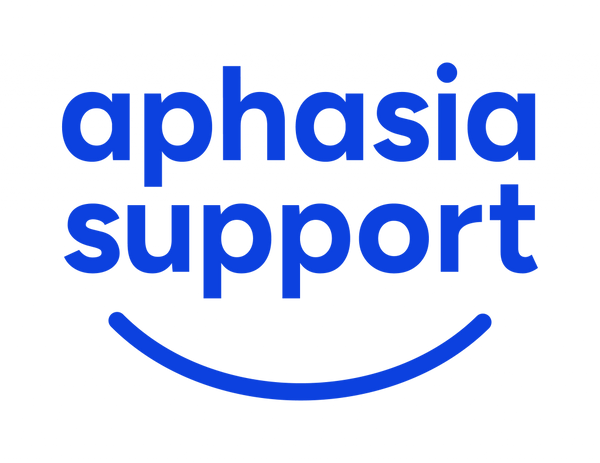How much do you know about aphasia?

Language is everywhere and affects every part of life. It’s how we connect, learn, work, and just be in the world. It's instinct, and it's often something we take for granted.
For someone with aphasia, those everyday interactions can become incredibly difficult. But how much do you really know about this hidden disability?
85% of people in the UK have never heard of aphasia. During our recent visit to Parliament, we saw this statistic come to life. When we asked MP's, most knew very little about the condition and welcomed insight from our experienced team.
Aphasia Support Trustee, Dr Caroline Haw, was our resident expert on the day - a practicing Speech and Language Therapist and Teacher at the University of Sheffield. Caroline highlighted just how crucial it is to raise awareness of aphasia, improve long-term support, and recognise that with the right help, people with aphasia can still lead meaningful, connected lives.
In this blog, we recreate those pivotal conversations and hear directly from Caroline about what aphasia is and how we can all play a part in creating a more inclusive world.
Q&A

Let’s start with the basics. What is aphasia?
Caroline: “Aphasia is a language impairment or communication disability which results from damage to the parts of the brain which process language. This might be stroke, traumatic brain injury, tumour, and other neurological conditions.”
That sounds like it could affect a huge part of someone’s life.
Caroline: “Language and communication are central to us as human beings, and they permeate our daily lives in a society which is laden with language.”
She adds: “We need language for our education, employment, relationships, expressing our views, the list is endless - it’s not something we can separate from life, it’s a huge part of the way we function in society.”
What kinds of challenges might someone with aphasia face?
Caroline: “Language is about finding and understanding words, producing and comprehending sentences - this includes speaking and listening, reading and writing, using technology and smartphones. A person with aphasia may have difficulties with any, some, or all of these areas.”
Are there different types of aphasia?
Caroline: “Aphasia is the blanket term, but there are different types of aphasia which you may hear about. The terms receptive and expressive aphasia reflect the relative impact on a person’s ability to understand or produce language, be this in spoken or written forms. You may also hear medical terms, like Broca’s or Wernicke’s aphasia.”
“But,” she says, “the reality is that aphasia is complex and it’s different for each person.”
What are some of the common misconceptions about aphasia?
Caroline: “It’s important to say what aphasia is not. I’m including these because people with aphasia and their families report frequent lack of understanding around aphasia, so it’s important to respect their experiences and try to improve this.”
She continues:
- “Aphasia resulting from stroke and brain injury is not dementia. It can be confusing – for example, you may have heard about Primary Progressive Aphasia, which is a type of dementia. There are some similarities in presentation, but it is a different underlying cause and needs different intervention.”
- “People with aphasia do not lack capacity. Impaired language can mask competence, but with the appropriate support and adaptations to written and spoken communication, people with aphasia can participate effectively in decision making.”
- “People with aphasia may have mental health needs resulting from the condition, but aphasia in itself is not a mental health condition.”
How many people are affected by aphasia in the UK?
Caroline: “At least a third of stroke survivors have aphasia. It’s a chronic condition, meaning that people live with it in the long term. That equates to over 350,000 people in the UK who live with aphasia after stroke. This figure doesn't include the additional number of people who have aphasia resulting from tumours, traumatic brain injuries or a degenerative condition such as dementia, bringing the likely total to over 400,000. It's important to look beyond the statistics. These aren't just numbers. This is real life.”
It must be a huge adjustment - not just for the person with aphasia, but for their family too.
Caroline: “Aphasia happens in the brain of an individual but it affects the whole family. In general, people with aphasia rely more on family members to support them. This means that loved ones can become carers overnight. Families need support too.”
She also points out the emotional impact:
“Incidence of depression is up to 70%. This is much higher than the rates for depression in stroke survivors without aphasia.”
What about friendships and employment - how are those affected?
Caroline: “Research tells us that people with aphasia lose their friends because of the challenges to communication on both sides. This is a phenomenon across many health conditions, but in the case of aphasia it’s particularly marked.”
“It’s rare for people with aphasia to be able to return to their pre-stroke employment, and many don’t return to work at all. There are obvious difficulties for individuals, but there are also significant barriers resulting from a lack of understanding of aphasia, and therefore an inability on the part of employers to make reasonable and appropriate adjustments.”
Is there any hope of improvement or recovery?
Caroline: “Aphasia can improve over time, but there is no quick fix.”
“Speech and language therapy is effective in helping people recover language. We have lots of research evidence to support interventions and very helpful current guidance around service provision from NICE and the National Clinical Guideline for Stroke.”
But she’s quick to add:
“Despite all this however, service provision is lacking in some areas, particularly in the longer term, when people with aphasia and their families feel abandoned and left isolated when they still need ongoing support and practical help.”
What would you like people to take away from this conversation?
Caroline: “I would like you to think about your life – and now imagine it without the language skills you use every day. That might give you a small insight into living with aphasia.”
“Now imagine the sort of long term support you might value, as an individual, as a family member or friend of someone with aphasia."
"Ask yourself how you can be part of a bigger solution to an enormous social challenge?”

